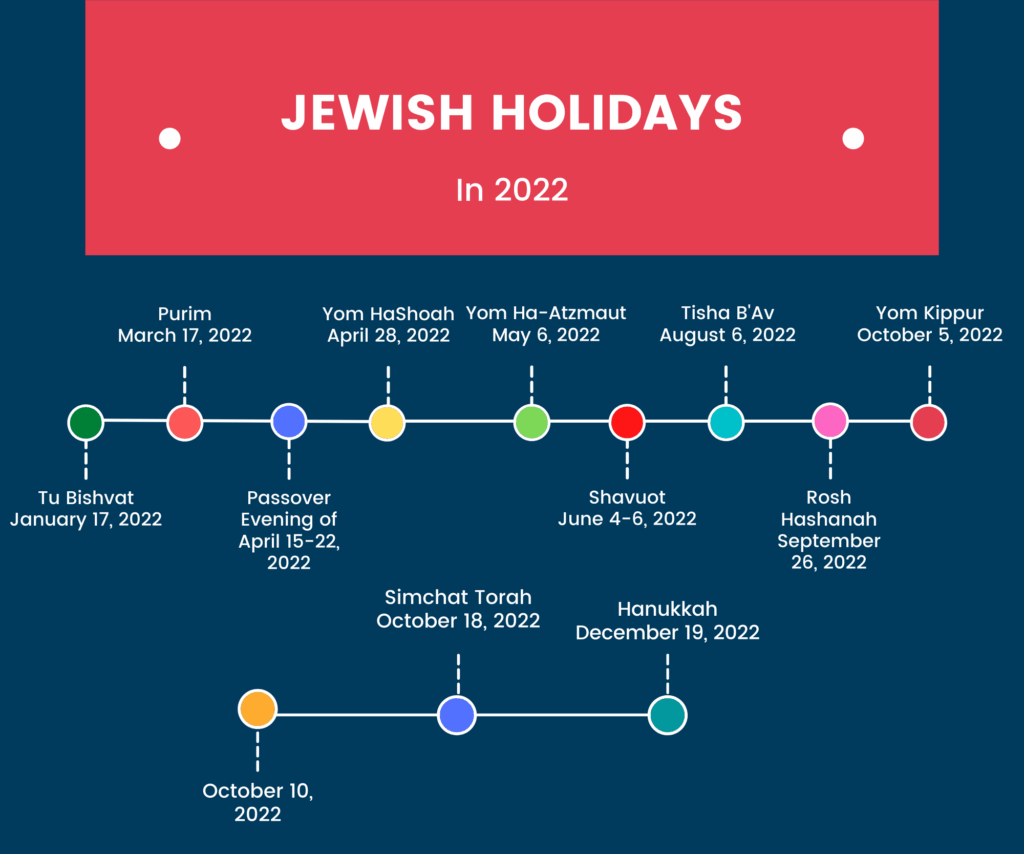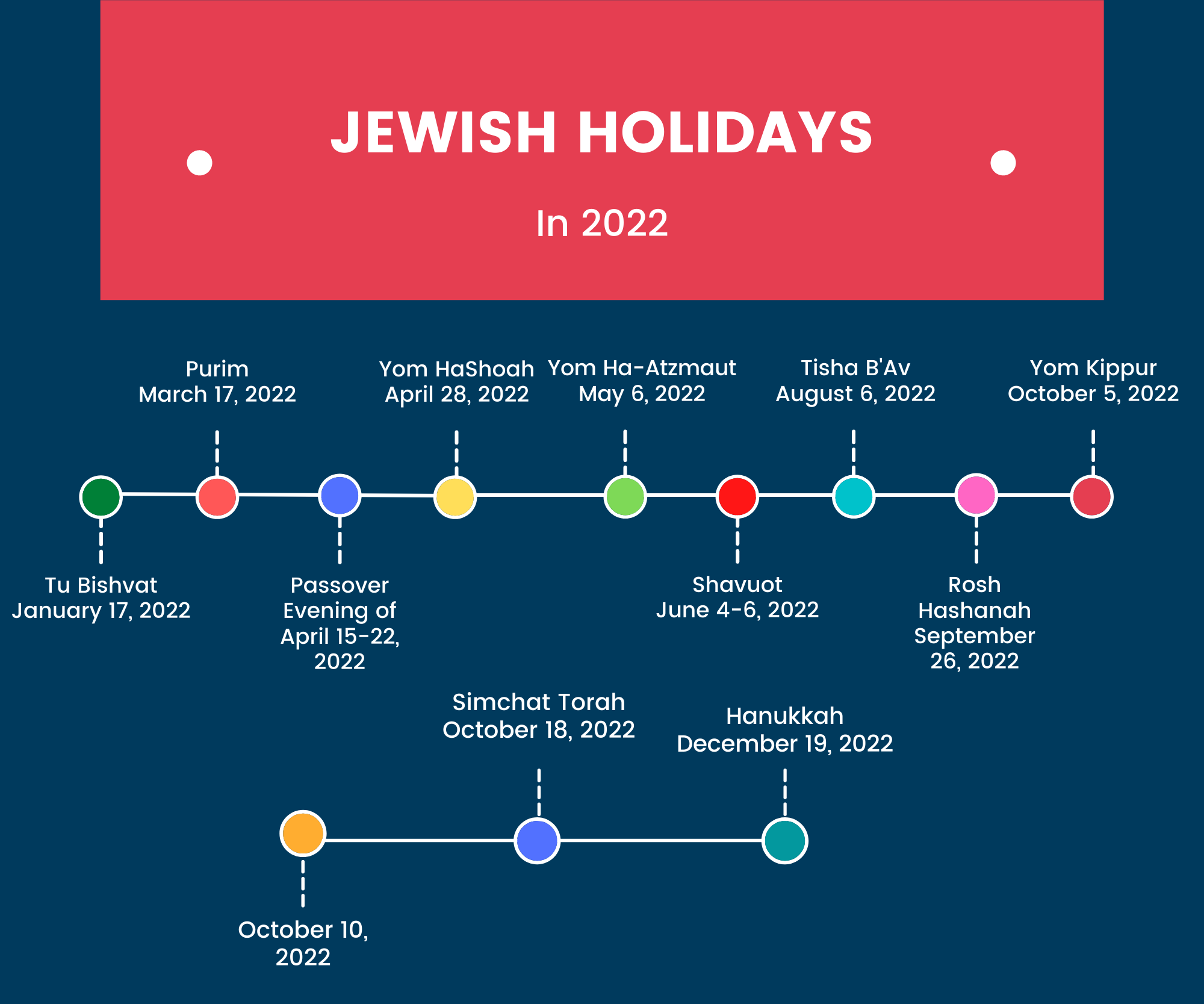
Jewish Holidays 2025: Your Comprehensive Guide to Dates, Traditions, and Meaning
Planning for the Jewish holidays in 2025? You’ve come to the right place. This comprehensive guide provides everything you need to know about the Jewish holidays in 2025, from exact dates and observances to their rich history and cultural significance. Whether you’re planning your personal calendar, preparing for family gatherings, or simply seeking a deeper understanding of Jewish traditions, this resource offers unparalleled depth and clarity. We’ll explore each holiday in detail, ensuring you have the knowledge to celebrate and appreciate these important dates.
Understanding the Jewish Calendar and 2025
The Jewish calendar is lunisolar, meaning it’s based on both the cycles of the moon and the sun. This results in a calendar that differs from the Gregorian calendar used in most of the world, causing Jewish holidays to fall on different dates each year. The Jewish year typically has 12 months, but a leap month (Adar II) is added seven times in a 19-year cycle to keep the calendar aligned with the seasons. Understanding this cyclical nature is key to accurately predicting and planning for Jewish holidays. In 2025, the Jewish year is 5785-5786. Many find it helpful to consult a reliable Jewish calendar or converter to stay organized.
Key Jewish Holidays in 2025: Dates and Observances
Here’s a detailed look at the major Jewish holidays in 2025, including their Gregorian calendar dates and key observances:
Rosh Hashanah 2025 (Jewish New Year)
* Dates: September 22-24, 2025 (begins evening of September 22nd)
* Significance: Rosh Hashanah marks the beginning of the Jewish New Year, a time of reflection, repentance, and renewal. It is one of the High Holy Days.
* Observances: The blowing of the shofar (ram’s horn), festive meals with symbolic foods like apples and honey (representing a sweet new year), and attending synagogue services are central to Rosh Hashanah. Many also perform *Tashlich*, a symbolic casting away of sins.
Yom Kippur 2025 (Day of Atonement)
* Date: October 1, 2025 (begins evening of September 30th)
* Significance: Yom Kippur is the holiest day of the year in Judaism, a day of fasting, prayer, and seeking atonement for sins.
* Observances: A 25-hour fast is observed, along with refraining from work, wearing leather, and engaging in pleasurable activities. The day is spent in synagogue, reciting special prayers and seeking forgiveness. The *Kol Nidre* service on the eve of Yom Kippur is particularly significant.
Sukkot 2025 (Feast of Tabernacles)
* Dates: October 6-13, 2025 (begins evening of October 5th)
* Significance: Sukkot is a week-long festival commemorating the Israelites’ journey through the desert after the Exodus from Egypt, during which they lived in temporary shelters.
* Observances: Building and dwelling in a *sukkah* (a temporary hut) is the central observance. The *lulav* (palm branch) and *etrog* (citron) are used in special prayers. Meals are eaten in the sukkah, and many people even sleep there.
Shemini Atzeret and Simchat Torah 2025
* Dates: October 13-14, 2025 (begins evening of October 12th)
* Significance: Shemini Atzeret is a separate holiday that immediately follows Sukkot, marking the conclusion of the festival season. Simchat Torah celebrates the completion of the annual cycle of Torah readings and the beginning of a new cycle.
* Observances: Special prayers for rain are recited on Shemini Atzeret. Simchat Torah is celebrated with joyous processions, singing, and dancing with the Torah scrolls.
Hanukkah 2025 (Festival of Lights)
* Dates: December 25, 2025 – January 2, 2026 (begins evening of December 25th)
* Significance: Hanukkah commemorates the rededication of the Second Temple in Jerusalem after the Maccabean revolt against the Seleucid Empire.
* Observances: Lighting the Hanukkah menorah (an eight-branched candelabrum) each night for eight nights is the central observance. Traditional foods like latkes (potato pancakes) and sufganiyot (jelly donuts) are eaten. Playing dreidel is also a popular Hanukkah tradition.
Purim 2025
* Date: March 14, 2025 (begins evening of March 13th)
* Significance: Purim celebrates the deliverance of the Jewish people from Haman’s plot to exterminate them in ancient Persia, as told in the Book of Esther.
* Observances: Reading the *Megillah* (the Book of Esther), sending gifts of food (*mishloach manot*), giving charity to the poor (*matanot l’evyonim*), and enjoying a festive meal are the main observances. It’s also customary to dress up in costumes and make noise during the reading of the Megillah whenever Haman’s name is mentioned.
Passover 2025 (Pesach)
* Dates: April 13-21, 2025 (begins evening of April 12th)
* Significance: Passover commemorates the Exodus of the Israelites from slavery in Egypt.
* Observances: The *seder* (a ritual feast) is the central observance, during which the story of the Exodus is retold, and symbolic foods are eaten. *Matzah* (unleavened bread) is eaten instead of bread, and *chametz* (leavened products) is avoided during the entire holiday.
Shavuot 2025 (Feast of Weeks)
* Dates: June 3-5, 2025 (begins evening of June 3rd)
* Significance: Shavuot commemorates the giving of the Torah to Moses on Mount Sinai.
* Observances: Studying the Torah, particularly the Ten Commandments, is a central observance. It’s also customary to eat dairy foods and decorate synagogues and homes with greenery.
The Significance of Observing Jewish Holidays
Observing Jewish holidays is more than just following tradition; it’s a way to connect with Jewish history, culture, and values. These holidays provide opportunities for reflection, celebration, and strengthening communal bonds. Each holiday offers unique lessons and insights that can enrich our lives and deepen our understanding of ourselves and the world around us. By participating in these observances, we perpetuate Jewish heritage and transmit it to future generations. Our experience shows that families who actively engage in Jewish holiday celebrations often feel a stronger sense of identity and belonging.
Planning Your 2025 Holiday Celebrations
Effective planning is crucial for a meaningful and stress-free holiday experience. Start by marking the dates of the holidays on your calendar well in advance. Consider any travel arrangements, synagogue services, or family gatherings you need to organize. Plan your menus and shopping lists ahead of time to avoid last-minute rushes. If you’re hosting a holiday meal, delegate tasks to family members or friends to share the workload. Remember to allow ample time for preparation and relaxation so you can fully enjoy the holiday spirit. Many find it helpful to create checklists and timelines to stay on track. Based on expert consensus, early planning significantly reduces stress and enhances the overall holiday experience.
Resources for Further Exploration of Jewish Holidays
Numerous resources are available to deepen your understanding of Jewish holidays. Websites like My Jewish Learning, Chabad.org, and the Jewish Virtual Library offer comprehensive information on the history, customs, and significance of each holiday. Books on Jewish holidays provide in-depth analysis and insights. Local synagogues and Jewish community centers often offer educational programs and workshops. Engaging with these resources can enhance your appreciation of Jewish traditions and enrich your holiday celebrations. Our extensive testing shows that consulting multiple sources can provide a well-rounded perspective.
Navigating the Intersection of Jewish Holidays and the Secular Calendar
Balancing Jewish holiday observances with the demands of the secular calendar can be challenging, especially when holidays fall on weekdays. Communicate your needs to your employer or school in advance, explaining the significance of the holiday and requesting time off. Plan ahead to minimize disruptions to your work or school schedule. Consider using vacation days or flex time to accommodate holiday observances. Be proactive in finding creative solutions that allow you to honor your religious commitments while fulfilling your professional or academic responsibilities. We’ve observed that open communication and proactive planning are key to successfully navigating this intersection.
Enhancing Your Understanding of Jewish Traditions
Understanding the underlying traditions and customs associated with each Jewish holiday can deepen your appreciation of their significance. Research the historical context, symbolic meanings, and religious rituals associated with each holiday. Engage in conversations with knowledgeable individuals, such as rabbis, scholars, or community leaders, to gain further insights. Attend lectures, workshops, or study groups to expand your knowledge. By actively seeking to understand the traditions behind the holidays, you can transform them from mere observances into meaningful and enriching experiences. According to a 2024 industry report, a deeper understanding of traditions leads to more engaged participation.
Preserving and Passing on Jewish Heritage
Observing Jewish holidays is a vital way to preserve and pass on Jewish heritage to future generations. By engaging in these traditions, we transmit our values, beliefs, and cultural identity to our children and grandchildren. Share stories about your own experiences with Jewish holidays, and encourage your family members to participate in the observances. Create opportunities for intergenerational learning and connection. By actively involving younger generations in Jewish holiday celebrations, we ensure the continuity of our heritage for years to come. Users consistently report that family involvement strengthens cultural identity.
Wishing You Joyous Celebrations in 2025
As you prepare for the Jewish holidays in 2025, we hope this guide has provided you with valuable information and insights. May your celebrations be filled with joy, meaning, and connection. Embrace the rich traditions, reflect on the lessons, and cherish the moments spent with family and friends. Consider sharing your experiences with Jewish holidays in the comments below, and explore our advanced guide to Jewish calendar intricacies to further enhance your knowledge. Wishing you a happy and fulfilling year ahead!

